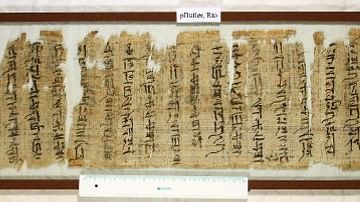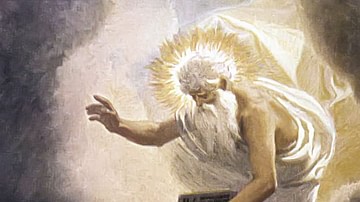Search
Did you mean: Elam?
Search Results

Article
The Vikings in Iceland
The medieval sources on the discovery and settlement of Iceland frequently refer to the explorers as “Vikings” but, technically, they were not. The term “Viking” applies only to Scandinavian raiders, not to Scandinavians generally. Some of...

Definition
Roman Constitution
Roman constitution was an accumulation of laws, legal decisions, and ancient customs. While today 'constitution' usually refers to a single act of legislation, this was not the case in ancient Rome. Instead, Roman government relied on the...

Definition
Fugitive Slave Act of 1850 - Northern Resistance and Tubman's Rescue of Charles Nalle
The Fugitive Slave Act of 1850 (1850-1864) was part of the Compromise of 1850, drafted to diffuse tensions between Southern 'slave states' and Northern 'free states.' The Fugitive Slave Act of 1793 already allowed slaveholders to reclaim...

Article
Declaration of the Rights of Man and of the Citizen
The Declaration of the Rights of Man and of the Citizen (French: Declaration des Droits de l’Homme et du Citoyen) is a human rights document adopted in the early stages of the French Revolution (1789-1799). Inspired by Enlightenment Age principles...

Definition
Hammurabi
Hammurabi (r. 1792-1750 BCE) was the sixth king of the Amorite First Dynasty of Babylon best known for his famous law code which served as the model for others, including the Mosaic Law of the Bible. He was the first ruler able to successfully...

Article
Legacy of the Ancient Romans
The legacy of the ancient Romans – from both the time of the Roman Republic (509-27 BCE) and the time of the Roman Empire (27 BCE - 476 CE) – exerted a significant influence on succeeding cultures and is still felt around the world in the...

Article
The Eloquent Peasant & Egyptian Justice
The Tale of the Eloquent Peasant is a literary work from the Middle Kingdom of Egypt (2040-1782 BCE) which illustrates the value society placed on the concept of justice and equality under the law. In the story, a peasant named Khun-Anup...

Definition
Ten Commandments
The Ten Commandments introduce the legislation received by Moses on Mt. Sinai after the Israelites escaped from Egypt (as related in the biblical book of Exodus). The "ten commandments" is often used as shorthand for the basic rules that...

Definition
Committee of Public Safety
In the French Revolution (1789-1799), the Committee of Public Safety (French: Comité De Salut Public) was a political body created to oversee the defense of the French Republic from foreign and domestic enemies. To achieve this goal, the...

Article
Childhood in the Viking Age
Childhood in the Viking Age (c. 750-1100) was largely undocumented as historical records primarily focus on adults, particularly men. Likewise, little is known about children's presence in the afterlife, as no runestones were raised in their...